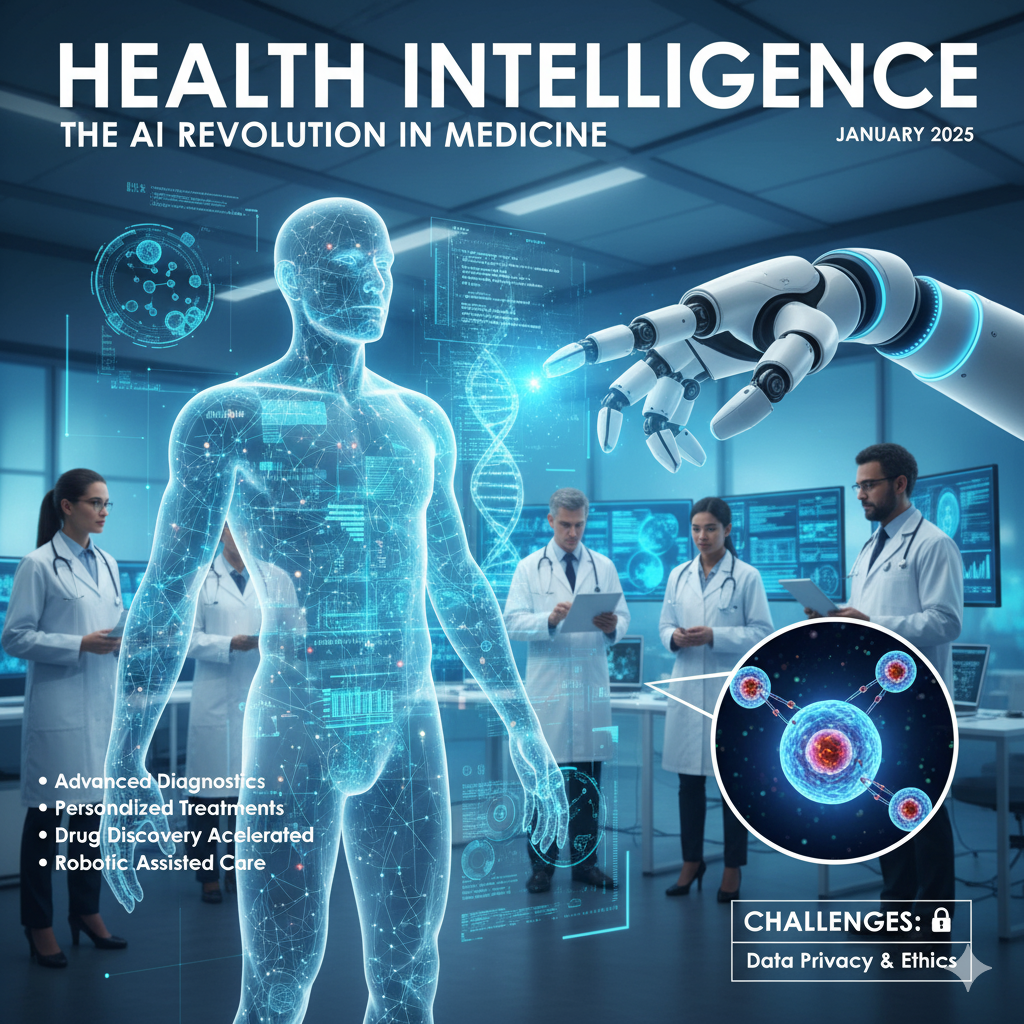“The Rise of AI in Healthcare: Revolutionizing Diagnosis, Treatment, and Patient Care”
Artificial Intelligence (AI) is rapidly transforming the healthcare landscape, moving beyond theoretical discussions to practical, impactful applications that are redefining how medical professionals diagnose, treat, and care for patients. From predictive analytics to personalized medicine, AI is proving to be a powerful ally in the quest for more efficient, accurate, and accessible healthcare.
One of the most significant contributions of AI in healthcare is in the realm of diagnostics. Machine learning algorithms can analyze vast amounts of medical imaging data – such as X-rays, MRIs, and CT scans – with remarkable speed and accuracy, often identifying subtle anomalies that might be missed by the human eye. This capability is particularly crucial in early detection of diseases like cancer, where timely diagnosis can dramatically improve patient outcomes. AI tools can also assist in pathology, analyzing tissue samples to pinpoint diseases with greater precision.
Beyond diagnosis, AI is revolutionizing treatment planning. By processing a patient’s genetic information, medical history, and lifestyle data, AI can help tailor personalized treatment regimens, moving away from a one-size-fits-all approach. This is particularly impactful in oncology, where AI can predict how a patient might respond to different therapies, allowing doctors to select the most effective course of action. Drug discovery is another area benefiting immensely, with AI accelerating the identification of potential drug candidates and predicting their efficacy and safety, significantly shortening development times and costs.
AI-powered virtual assistants and chatbots are also enhancing patient care and engagement. These tools can provide instant answers to common health questions, schedule appointments, send medication reminders, and monitor chronic conditions remotely. This not only empowers patients with more information but also reduces the burden on healthcare providers, allowing them to focus on more complex cases. Robotic process automation (RPA) is streamlining administrative tasks, from managing patient records to billing, freeing up valuable time for medical staff.
However, the integration of AI in healthcare is not without its challenges. Data privacy and security are paramount concerns, requiring robust safeguards to protect sensitive patient information. Ethical considerations regarding algorithmic bias, accountability, and the role of human oversight in AI-driven decisions are also critical. Ensuring equitable access to these advanced technologies and addressing the need for specialized training for healthcare professionals are further hurdles.
Despite these challenges, the trajectory of AI in healthcare is undeniable. As algorithms become more sophisticated and data sets grow, AI’s potential to enhance clinical decision-making, optimize operational efficiency, and ultimately improve global health outcomes will continue to expand. We are on the cusp of a medical revolution, where AI acts as a co-pilot, guiding us towards a healthier future.





